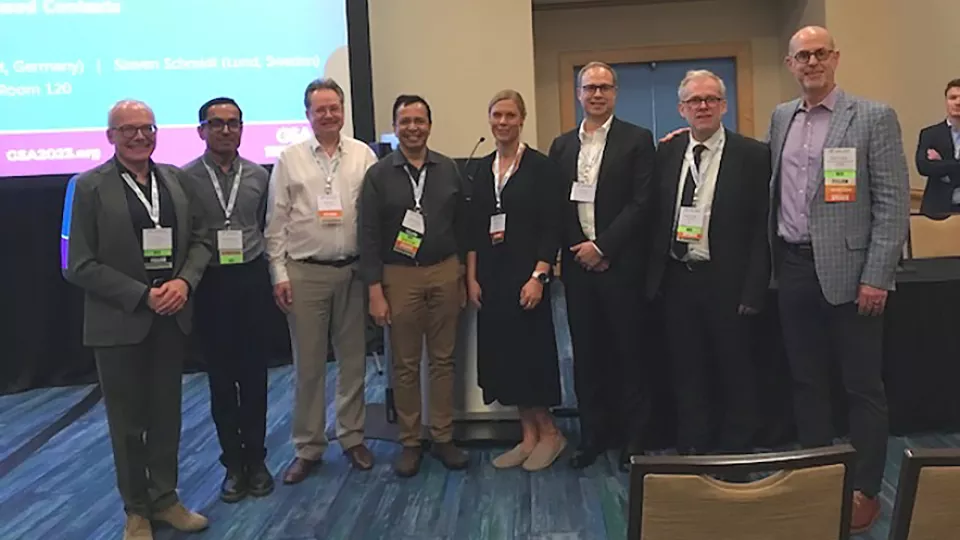The conference is organized annually and is one of the world's largest, presenting a wide range of research in the field of gerontology, with participants mainly from the USA and this year from 40 other countries.
David Dahlgren, Erik Eriksson, Maya Kylén, Susanne Iwarsson, Björn Slaug and Steven Schmidt traveled from the Department of Health Sciences at Lund University and from the School of Social Work; Håkan Jönson and Tove Harnett. They participated in symposia, oral presentations and with posters, or as co-authors.
– For our part, there were many presentations related to things that are also research areas within CASE - housing and local environment, technology, care for the elderly, ageism and user involvement. The research we presented attracted interest, not least of which our symposium on changes, such as retirement and changing homes when you age, was very well attended, says Professor Susanne Iwarsson.
CASE's coordinator, Steven Schmidt, co-chaired a symposium together with Professor Frank Oswald from Frankfurt Goethe University in Germany, Habib Chaudhury from Simon Fraser University in Canada and Malcolm Cutchin from Pacific Northwest University of Health Sciences in the USA.
The researchers who have been active in ageing research for many years were able to reconnect with colleagues they had not seen for a long time due to the pandemic. And younger colleagues made new contacts.
